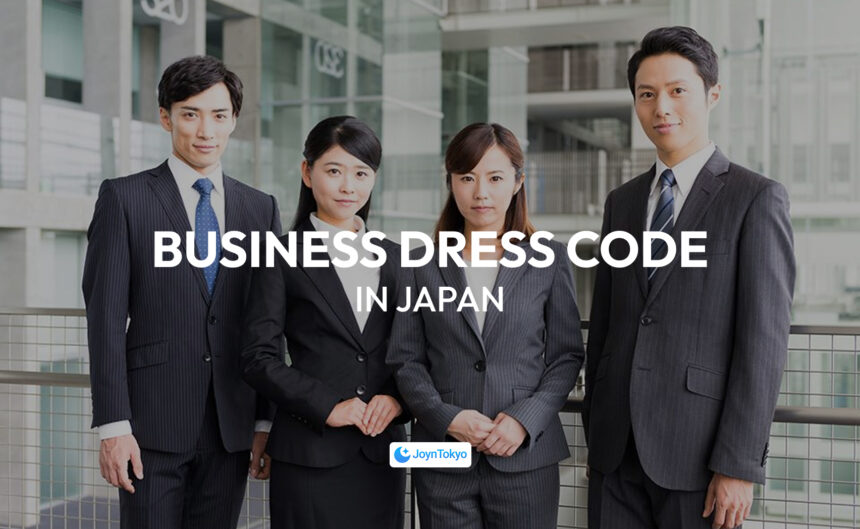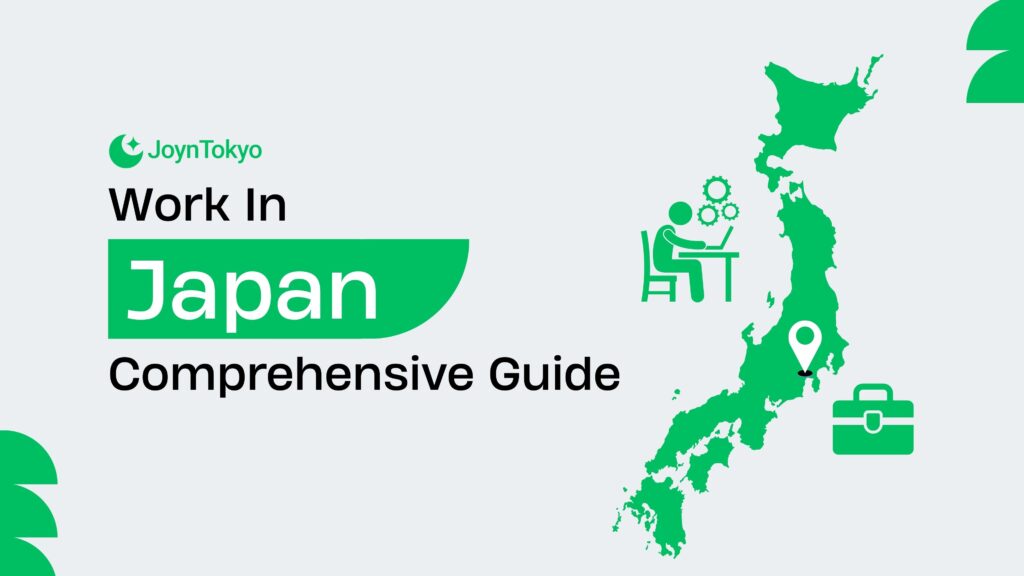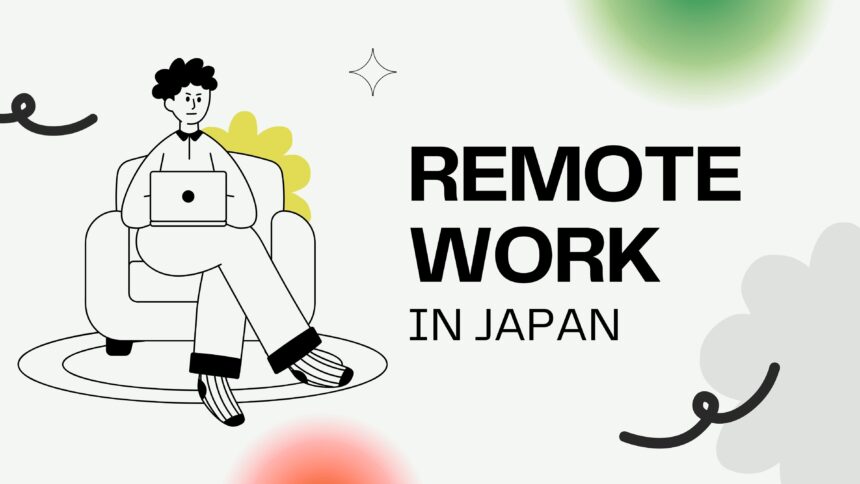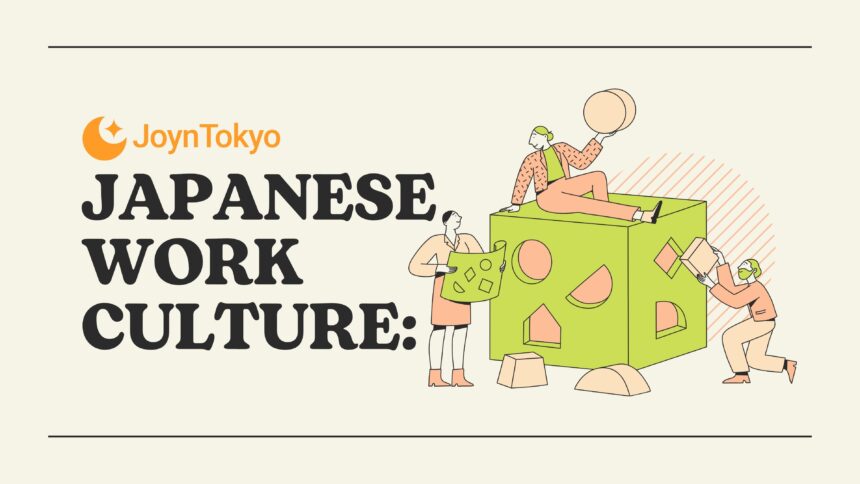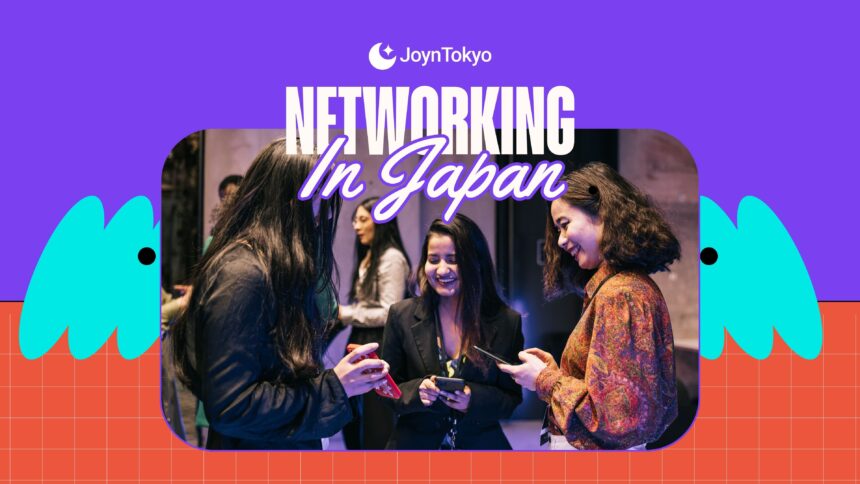Landing a job in Japan is exciting, yet many newcomers worry that one wardrobe mistake could undermine their hard work. The good news is that Japanese office attire follows a clear structure, shaped by tradition, social expectations, and modern business culture. By understanding these rules, you can present yourself with confidence while showing respect for workplace norms.
Why Appearance Matters in Japanese Offices
First impressions carry particular weight in Japan, where visual presentation is closely tied to professionalism and credibility. A neat, coordinated outfit signals that you value harmony within the team and are serious about your role. Even in industries that encourage innovation, overly casual or flashy clothing may be interpreted as careless or disrespectful rather than creative.
The Cultural Value of Dressing Conservatively
Japanese office fashion is deeply influenced by the concept of wa, or harmony, which emphasizes balance and unity over individual display. Suits resemble uniforms that visually align employees with the company’s goals and values. By avoiding extremes, you demonstrate that you prioritize the collective success of the organization instead of drawing attention to yourself.
Building a Core Wardrobe for Japan
New employees should start with safe, conservative clothing that aligns with standard office etiquette. Once you have observed how colleagues dress and understood your company’s specific rules, you can adapt your wardrobe accordingly. Below are the common expectations for men and women entering a Japanese workplace.
Read More
Men’s Business Essentials
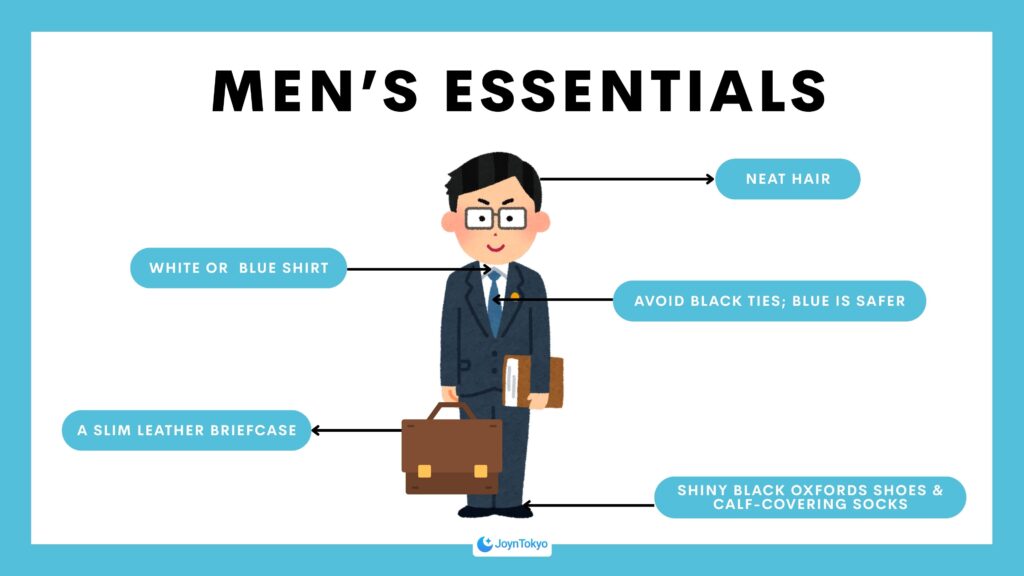
Men are generally expected to wear single-breasted suits in navy or charcoal, sometimes with subtle pinstripes. Shirts should be crisp and plain in white or light blue, paired with muted ties that avoid black, as that color carries funereal associations. Shoes must be polished black Oxfords with matching socks, and a slim leather briefcase is preferred over a casual backpack.
Women’s Business Essentials
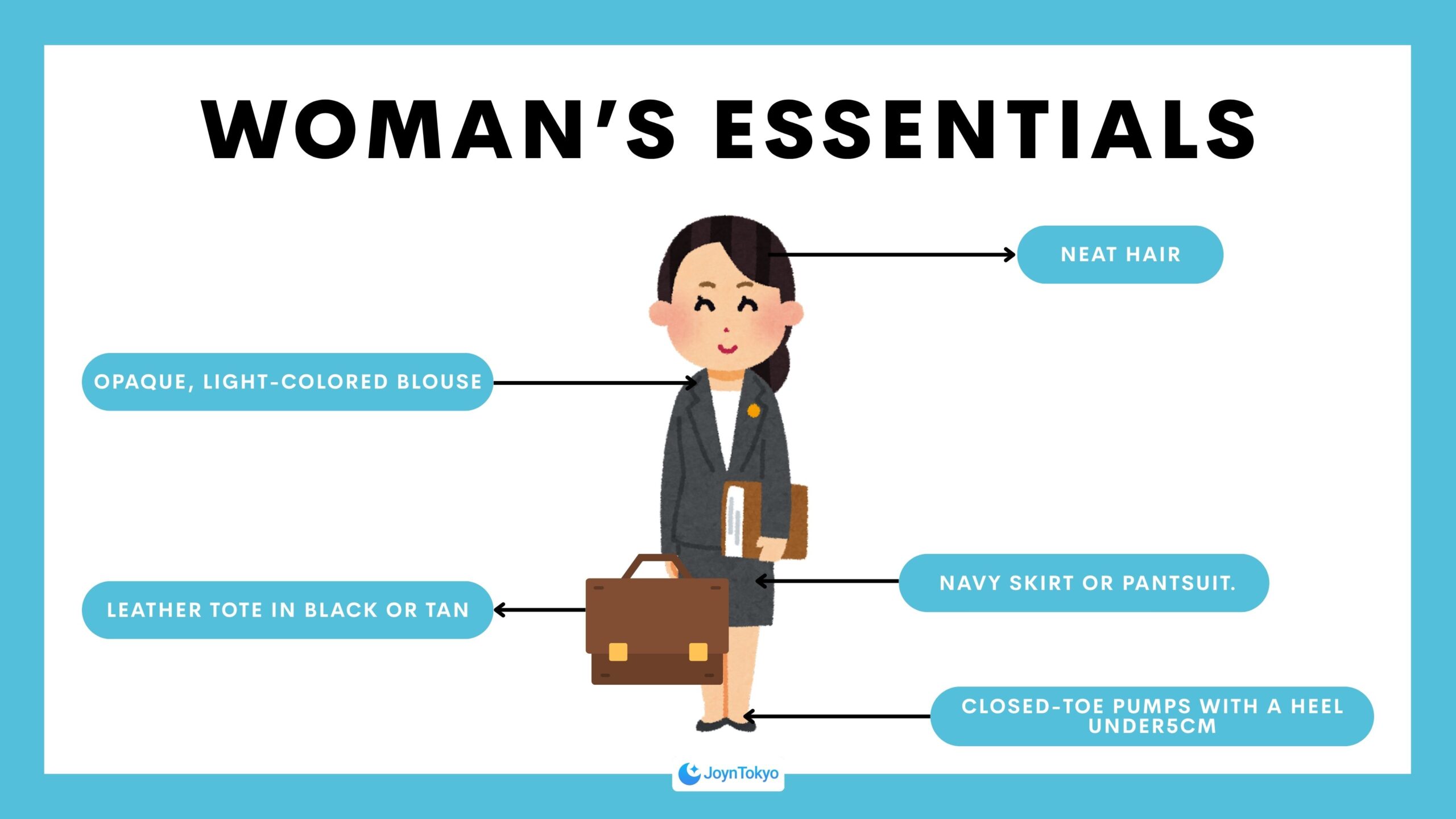
Women typically wear tailored skirt or trouser suits in dark tones, with skirts reaching the knee when standing. Blouses should be opaque and light-colored, avoiding sheer fabrics, frills, or deep necklines. Closed-toe pumps with moderate heels and beige stockings remain the standard, while a simple leather tote in black or tan completes the look.
Boost Your Chances of Finding the Right Opportunity!
Speak to our consultants to find out how you can start working in Japan!
Book Your FREE Consultation✓ 500+ Bookings as of 2026-03-06 ✓ English-speaking support
Seasonal Adjustments: Cool Biz & Warm Biz
Since 2005, the Ministry of the Environment has promoted Cool Biz, encouraging lighter attire from May through September to reduce reliance on air conditioning. During this period, ties may be removed and jackets optional, though clothing should remain muted and professional. In winter, Warm Biz allows for thermal layers under the standard dark suit, but client meetings still require full formality.
Grooming and Accessories
Even the best-tailored suit can lose its impact if grooming is neglected. Employers in Japan often evaluate subtle details such as hair, nails, and accessories when forming an impression of professionalism. Maintaining a polished appearance reflects discipline and attention to detail.
Hair, Face & Hands

Natural hair colors are generally expected until you are familiar with your company’s tolerance for personal expression. Men are usually either clean-shaven or maintain neatly trimmed facial hair, while nails should be kept short and free of bright polish. Fragrance is often avoided, though a single discreet spray of cologne or perfume may be acceptable.
Accessories and Minimalism
Minimalism defines acceptable accessories in the workplace. For men, a wedding ring and an analogue watch are sufficient, while women may wear small earrings or a discreet necklace. Bags, phone cases, and laptop sleeves should be neutral, as cartoon or flashy designs can appear unprofessional. Shoes must be well maintained, with scuffed or worn heels quickly replaced.
Relaxed Dress Codes and Industry Differences
Not every workplace in Japan enforces strict dress codes, especially in start-ups, tech companies, or creative fields. However, even in relaxed environments, tidiness and coordination remain essential indicators of professionalism. Understanding how your office interprets business casual is important before adjusting your wardrobe.
Tech Start-ups and Creative Studios

In more modern industries, employees often wear dark jeans or chinos with collared shirts and blazers. Clean sneakers may be acceptable if they are free of logos and kept spotless. T-shirts with designs or graphics should be avoided until you confirm that such attire is normal for senior staff.
Business Casual Days
If your office specifies business casual, opt for tailored trousers, leather shoes, and a pressed shirt. Fine knitwear can replace a blazer during colder months, though hoodies and casual sweatshirts are still considered inappropriate. Keeping a blazer at your desk is wise for unexpected meetings or calls with executives.
Remote and Hybrid Work
Video meetings are increasingly common in Japanese companies, and colleagues may capture screenshots for minutes or records. Wearing a collared shirt, using a neutral backdrop, and ensuring good lighting all contribute to maintaining professionalism, even from home. Consistency in presentation online reflects the same values expected in person.
Practical Checklist Before Important Meetings
- Suit pressed and lint-free?
- Colors conservative and coordinated?
- Hair neat, nails clean, scent subtle?
- Shoes polished, heels intact?
- Correct stance on Cool Biz for today?
- Backup blazer or tie in your bag?
Many Japanese professionals run through a quick mental checklist before meeting clients or executives. Ensure your suit is pressed and free of lint, colors are coordinated, and shoes are polished. Confirm your grooming, keep a tie or blazer on hand in case of unexpected formality, and err on the side of overdressing until you are familiar with company norms. By preparing in this way, you project both confidence and cultural awareness.


